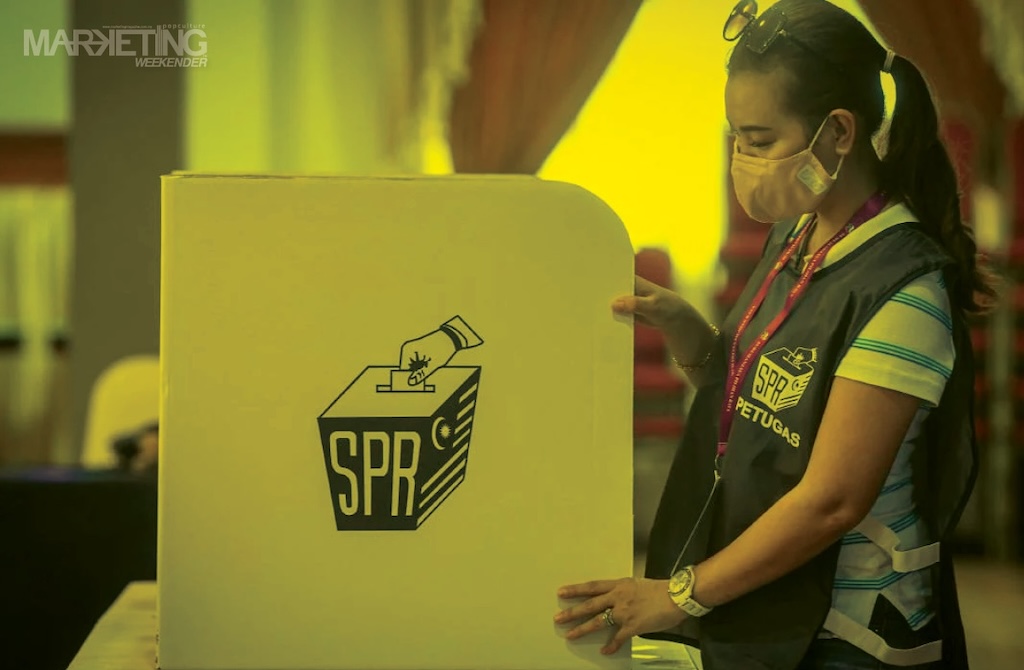Recently, a friend of mine asked me if my brand affinity to the chilled can of beer in my hand was determined by an acquired taste or simply some deep-rooted tweak of emotional branding?
It caught me off guard. I tried my best to come up with a sensible answer.
Somehow, my first choice of beer has always been Tiger. I guess there’s a strong emotional bonding with the brand name more than anything else. My nickname is Tiger. I have always been fascinated by the one-time abundant tiger population surrounding my hometown of Rawang and its periphery, Templer’s Park.
I recall a tiger devouring one of the cows my family reared in 1960. These days, my emotional bonding with the tiger is as an endangered species. Saving and protecting this majestic icon of Malaysia – the great Malayan tiger.
Moving forward, the same friend, who is a die-hard political party supporter, asked on the likely impact of emotional branding in shaping Malaysia’s upcoming state elections on 12 August 2023. Will it play a decisive role at the ballot box?
Studies have shown that the impact of emotional branding goes beyond the advertising of products and services. Emotional branding has played a significant role in shaping the outcomes of even political campaigns and elections worldwide.
Malaysia’s upcoming state elections are no exception, as emotional branding techniques are likely to have a considerable impact on voter behavior and political outcomes.
In this case, emotional branding is the strategic use of emotions to create a strong connection between a political party or candidate and the electorate. It involves crafting a compelling narrative, using powerful symbols, and tapping into the aspirations, values, and concerns of voters.
By evoking specific emotions, political parties in Malaysia can effectively shape public perception, create a sense of identity and belonging, and influence voters’ decisions. This is clearly visible in the scramble for voters between the PH and BN team versus the PN and PAS team.
In the context of Malaysia’s state elections in Kedah, Penang, Selangor, Negeri Sembilan, Terengganu, and Kelantan, emotional branding can have several significant impacts:
Building Trust and Relatability
Emotional branding allows political parties to connect with voters on a personal and emotional level. By emphasising shared values, aspirations, and concerns, parties can build trust and relatability with the electorate. This emotional connection helps establish a positive image for candidates and parties, enhancing their credibility and increasing voter support.
Differentiation and Positioning
Emotional branding enables political parties to differentiate themselves from their competitors. By crafting a unique and compelling narrative, parties can position themselves as the most suitable choice to address the specific needs and desires of voters. This can be achieved by appealing to emotions such as hope, empathy, or a sense of belonging to a particular community or cause.
Mobilising Supporters
Emotionally charged messages and campaigns can mobilise supporters and increase voter turnout. When individuals feel a strong emotional attachment to a party or candidate, they are more likely to actively participate in the electoral process, including attending rallies, volunteering, and persuading others to vote. Emotional branding can thus energise party bases and create a ripple effect in attracting broader support.
Shaping Perceptions and Public Discourse
Emotional branding allows political parties to shape public discourse by framing the narrative in a way that resonates with voters’ emotions. By highlighting specific issues and concerns, parties can steer public opinion and set the agenda for political discussions. This can be particularly influential in shaping voters’ priorities and influencing their decision-making process.
Mitigating Negative Factors
Emotional branding can help mitigate negative factors or controversies associated with candidates or parties. By evoking positive emotions and emphasising desirable qualities, parties can counterbalance negative perceptions or criticisms. This approach enables parties to regain trust, rebuild their reputation, and redirect the focus of voters towards more favourable aspects.
Overcoming Rational Evaluation
While voters often engage in rational evaluation of political platforms and policies, emotions can play a significant role in decision-making. Emotional branding can influence voters to rely more on their emotions and instincts, rather than purely logical considerations. Parties that effectively tap into voters’ emotions can sway their decisions, even if their policies or proposals may not be objectively superior.
A good example is in the state of Kelantan, where PAS continues to capture the hearts and minds of the electorate despite the lack of development, investments, and employment opportunities.
However, it is imperative to note that while emotional branding can be a powerful tool in political campaigns, it also carries ethical considerations. Manipulative tactics or exploiting emotions without genuine intentions can erode public trust and backfire on parties or candidates.
Therefore, maintaining authenticity, transparency, and integrity is crucial to ensure the effectiveness and ethical use of emotional branding strategies.
Emotional branding is likely to have a significant impact on Malaysia’s upcoming state elections. By forging emotional connections, political parties can influence voter behavior, mobilise support, shape public discourse, and position themselves favourably.
Parties that effectively utilise emotional branding techniques while maintaining authenticity and ethical standards are more likely to garner voter trust and ultimately succeed in the elections.
Who will be the winners of Malaysia’s “State Elections Political APPIE Awards 2023?”
The rakyat will deliver their verdict on 12 August 2023.
MARKETING Magazine is not responsible for the content of external sites.










